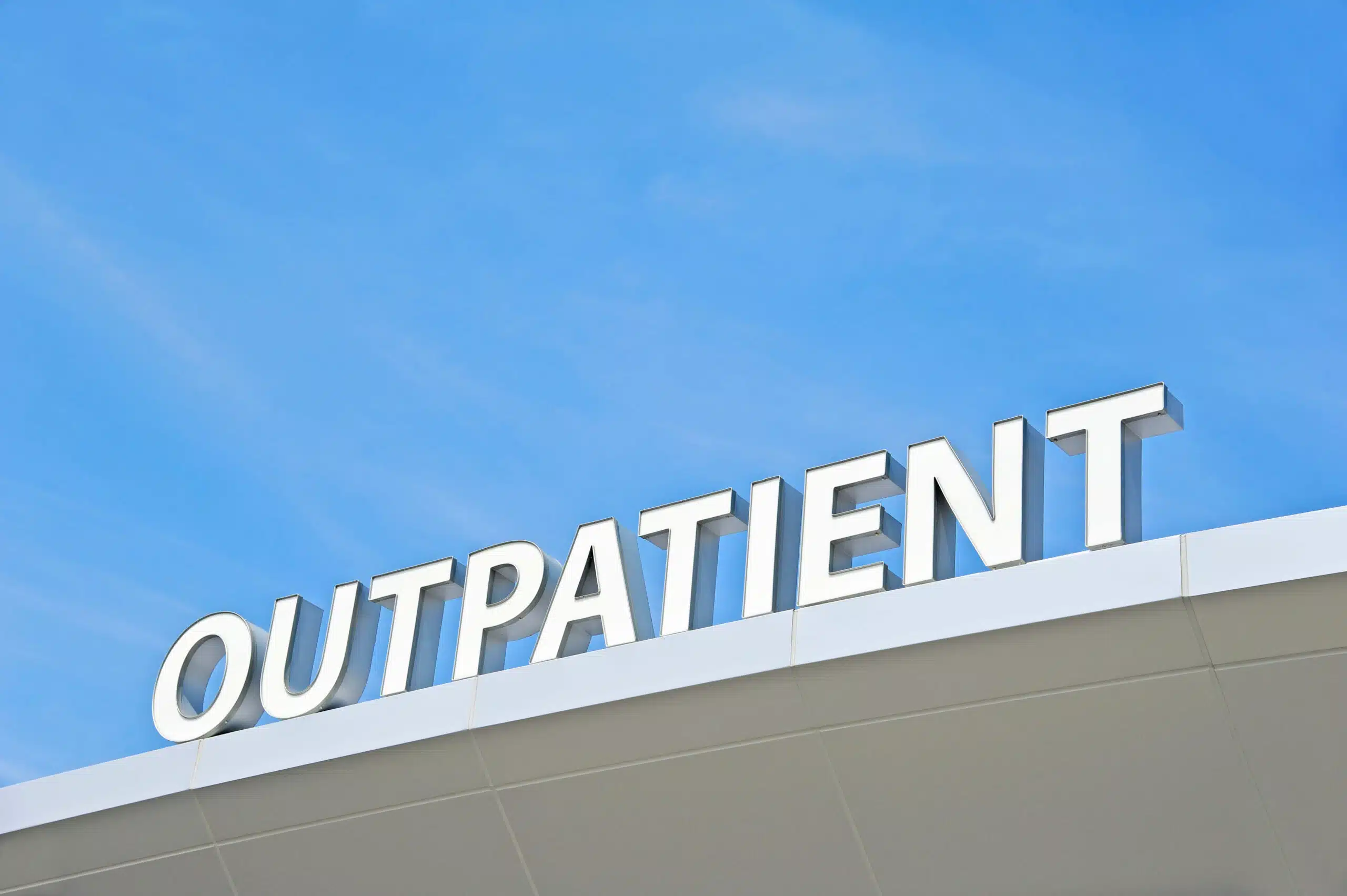Outpatient Rehab Transition
Transitioning from a structured, intensive level of care—such as a Partial Hospitalization Program (PHP) or Intensive Outpatient Program (IOP)—to standard outpatient rehabilitation is a pivotal step in one’s path to lasting recovery. At Lifescape Recovery, our goal is to ensure that this transition is as seamless, supportive, and empowering as possible. Outpatient rehab offers continued therapeutic engagement while allowing clients to reintegrate into daily life. In this article, we’ll explore what outpatient rehab entails, how Lifescape guides clients through each phase of the transition, and why this next step is essential for maintaining momentum in recovery.

Understanding Outpatient Rehab
What Is Outpatient Rehab?
Outpatient rehab refers to a level of care in which clients attend scheduled therapy sessions—typically once or twice a week—while living at home and managing work, school, or family responsibilities. Unlike PHP (5–6 hours per day, 5 days a week) or IOP (3–4 hours per day, 3–5 days per week), outpatient rehab generally involves:
- Weekly Individual Therapy: One-on-one sessions with a licensed clinician to address ongoing challenges, refine coping strategies, and adjust treatment goals.
- Group Therapy or Support Groups: Peer-based meetings (either Lifescape-led or community 12-step/SMART Recovery groups) that reinforce relapse prevention, social skills, and accountability.
- Medication Management (If Applicable): Meetings with a psychiatrist or psychiatric nurse practitioner to monitor and adjust psychiatric medications or medication-assisted treatment (MAT) as needed.
Who Benefits from Outpatient Rehab?
Clients who typically transition to outpatient rehab include those who:
- Have successfully completed a higher level of care (PHP or IOP) and demonstrated stability in mood, behavior, and coping skills.
- Possess a safe, supportive home environment without immediate safety concerns (e.g., active suicidal ideation, unmanaged psychosis).
- Exhibit a consistent commitment to recovery goals, actively practicing new skills learned during intensive treatment.
- Require ongoing therapy to address co-occurring mental health conditions (depression, anxiety, PTSD) or maintain sobriety from substances.
Why Transitioning Properly Matters
Moving directly from an intensive program to minimal or no support often leads to “treatment vacuums”—periods during which relapse risk spikes. A structured outpatient plan prevents such gaps by:
- Reinforcing Skills Learned: Weekly therapy and support groups keep clients accountable for using relapse-prevention techniques developed in PHP/IOP.
- Monitoring Progress: Regular check-ins with clinicians ensure early intervention if symptoms re-emerge or stressors intensify.
- Fostering Independence Gradually: Outpatient rehab strikes the right balance between professional support and real-world practice—allowing clients to build confidence in managing daily triggers on their own.
- Maintaining Connection to a Recovery Community: Group therapy, alumni events, and local support meetings provide a network that reduces isolation and strengthens motivation.
Lifescape’s dedicated clinical team designs each outpatient transition plan to match individual strengths, challenges, and life circumstances—reducing the risk of setbacks and bolstering long-term success.

Core Components of Lifescape’s Outpatient Rehab
Evidence-Based Therapies
- Cognitive Behavioral Therapy (CBT): Addresses unhelpful thought patterns and reinforces adaptive coping skills.
- Acceptance and Commitment Therapy (ACT): Encourages mindfulness and value-driven behavior to reduce experiential avoidance.
- Dialectical Behavior Therapy (DBT) Skills: Focuses on distress tolerance, emotion regulation, and interpersonal effectiveness, especially beneficial for clients with borderline traits or self-harm histories.
- Psychodynamic Therapy (As Needed): Explores deeper emotional conflicts and attachment patterns that may underlie substance use or mental health struggles.
Psychiatric Care and Medication Management
For clients diagnosed with co-occurring disorders—such as major depressive disorder, bipolar disorder, or PTSD—regular psychiatric visits ensure medication regimens remain optimal. Medication adjustments, including evidence-based treatments like SSRI/SNRI antidepressants or mood stabilizers, occur in close collaboration with therapists.
Peer Support and Community Integration
- Lifescape Alumni Group: Once-per-week meetings facilitated by Lifescape clinicians allow graduates of PHP/IOP to share experiences, exchange relapse-prevention tips, and encourage new outpatient participants.
- Community Referrals: Clinicians guide clients toward local 12-step meetings, or faith-based support groups—reinforcing a broader recovery network beyond Lifescape’s walls.
- Family Education Workshops: Monthly workshops teach loved ones about healthy communication, boundary-setting, and how to support a family member in outpatient recovery.
Case Management Services
Case managers assist with:
- Housing Resources: Sober-living referrals, rental assistance programs, or transitional housing when needed.
- Vocational Support: Links to job-training programs, resume-building workshops, or supported employment services.
- Financial & Legal Referrals: Assistance with budgeting, connecting to affordable care grants, or recommending legal clinics for expungement guidance.
Benefits of a Structured Outpatient Transition
Continuity of Care
The layered approach—from PHP/IOP to outpatient—ensures there are no treatment voids. By maintaining regular, albeit less frequent, contact with the clinical team, clients can swiftly address emerging challenges before they escalate.
Real-World Skill Application
Outpatient rehab allows clients to apply healthy coping skills directly in their daily environments—workplace, social settings, and family life—while still receiving professional feedback. This on-the-job practice cements relapse-prevention techniques more effectively than purely inpatient-based therapy.
Cost-Effectiveness & Flexibility
Compared to PHP or IOP, outpatient therapy requires fewer clinical hours per week, reducing overall treatment costs. Clients can maintain employment and manage personal responsibilities without sacrificing essential support.
Peer Accountability & Support
Weekly or biweekly group meetings foster a sense of belonging. Sharing successes and setbacks in a supportive environment not only reduces isolation but also provides practical tips from peers who have navigated similar challenges.
What to Expect as You Transition
Emotions and Challenges
- Mixed Feelings: It’s normal to feel anxious or excited about greater independence. Some clients report “testing the waters” by gradually reintegrating into social situations, only to realize they still need support—prompting timely adjustments to their treatment plan.
- Potential Setbacks: Life stressors (e.g., relationship conflicts or work deadlines) may surface during the early outpatient weeks. Rather than viewing these as failures, clinicians frame them as opportunities to refine coping strategies and reinforce relapse-prevention tools.
Practical Tips for Success
- Maintain a Structured Routine: Schedule therapy sessions, support group meetings, exercise, and healthy meal times. Routines create stability.
- Prioritize Self-Care: Regular sleep, balanced nutrition, and stress-reduction practices (meditation, yoga, or journaling) are essential.
- Build a Support Network: Share your outpatient schedule with trusted friends or family members who can help hold you accountable.
- Be Transparent with Clinicians: If cravings return or mental health symptoms emerge, inform your therapist promptly. Early intervention can prevent a full-blown relapse.
At Lifescape Recovery, we provide both in-person and virtual (telehealth) services and are available 24/7 via phone, email, live chat, or contact form. If you need FREE help please contact the National Helpline about mental and/or substance use disorders, prevention, treatment, and recovery in English and Spanish.


While maintaining confidentiality, here are anonymized scenarios illustrating successful transitions:
-
“Maria’s Journey”: After a 6-week PHP stay for co-occurring PTSD and alcohol use, Maria stepped down to weekly outpatient therapy. By applying grounding techniques learned in PHP to daily flashbacks, she maintained sobriety and returned to college full-time. Over eight months, session frequency tapered to monthly check-ins, and she later volunteered as a peer mentor in Lifescape’s alumni group.
-
“James’s Transformation”: James completed a 10-week IOP track for opioid use disorder, stabilized on medication-assisted treatment, and immediately entered outpatient care twice weekly. When work-related stress triggered cravings at month two, his therapist added a coping-skills workshop and group therapy. By month six, James was facilitating newcomer meetings, exemplifying how outpatient support fosters leadership and purpose in recovery.
Published: May 09, 2025
Last Updated: June 01, 2025

Published: January 26, 2026
OCD vs. Autism: Understanding the Differences
Obsessive-compulsive disorder (OCD) and autism spectrum disorder (ASD) are often confused with one another. Both can involve repetitive behaviors, rigid routines, sensory sensitivities, and distress when things feel “off.” From the outside, the overlap can look striking. But in clinical treatment, the why behind those behaviors matters just as much as the behaviors themselves. At […]
Read more
Published: January 15, 2026
Obsessive-Compulsive Personality Disorder (OCPD)
People living with Obsessive-Compulsive Personality Disorder or OCPD often don’t see themselves as struggling with a mental health condition. They see themselves as responsible. Disciplined. Reliable. The person who holds everything together when others fall apart. But beneath that structure, many feel chronically tense, emotionally restricted, and exhausted by the pressure to do everything “the […]
Read more
Published: December 15, 2025
Why Mental Health & Addiction Spike During the Holiday Season?
The holiday season is often described as a time of joy, connection, and celebration. Yet for many individuals, it is also a period marked by increased emotional distress, worsening mental health symptoms, and a higher risk of substance use and relapse. Research consistently shows that rates of anxiety, depression, and addictive behaviors rise during late […]
Read more
